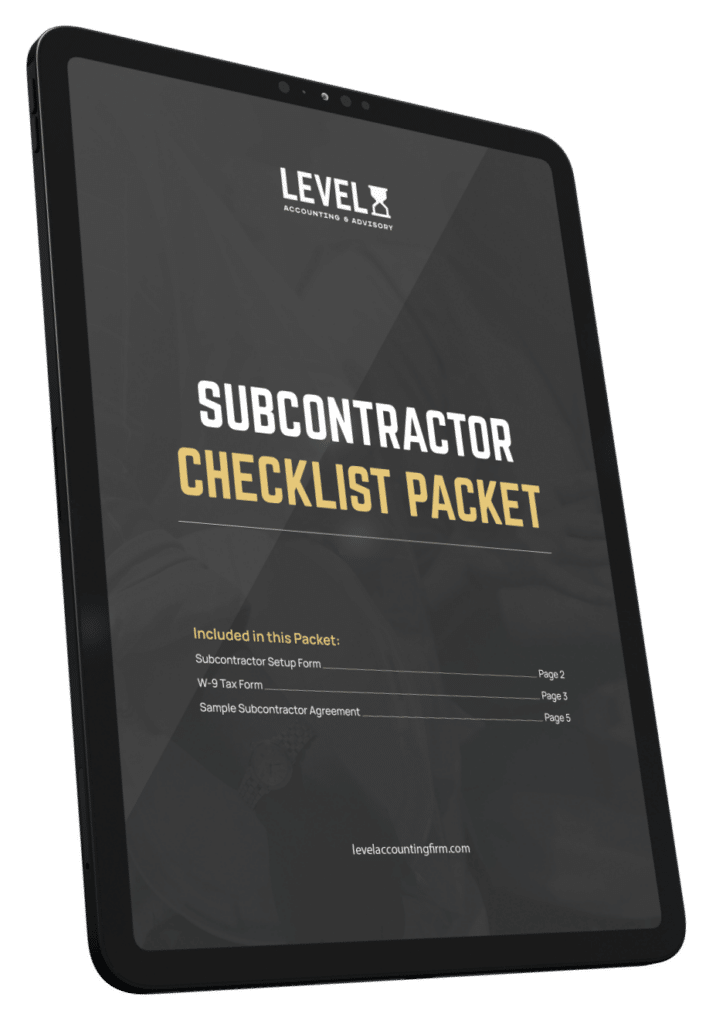As a small business owner in the construction or skilled trade industries, you’re always looking for ways to make your company stronger and more profitable.
Like every successful business owner, you understand the importance of setting goals. But do you have a system in place for developing meaningful, measurable, and achievable targets?
To develop this framework for setting and pursuing goals, every business leader should embrace key performance indicators (KPIs).
KPIs are used to identify specific, trackable objectives. KPIs are monitored over time in order to gauge a company’s performance in core areas, such as financial metrics, customer satisfaction, and operational efficiency.
Ready to integrate KPIs into your business planning? Follow these steps to get started.
Define Your Business Goals
What are you hoping to achieve with your construction or skilled trade business? Your goals might involve increasing sales, growing your customer base, or improving customer satisfaction.
As you define your goals, consider both short-term and long-term targets.
Once you’ve listed and prioritized your most pressing business goals, you can begin to identify the most useful KPIs for tracking your progress.
Identify the KPIs that Align with Your Goals
The next step is to find the specific KPIs that align with your business goals. You can formulate your own, or use standard small business KPIs. In the construction and trade industries, KPIs may include:
- Gross profit margin or net profit margin
- Operating cash flow
- Revenue per customer and revenue per employee
- Customer satisfaction scores and employee satisfaction scores
- Project delivery time
- Website traffic volume
- Website traffic-to-lead ratio
Choose KPIs that relate directly to the goals you set. If you’re adopting KPIs from a list, tweak them in order to better fit your particular industry and business.
Along with your company-wide KPIs, you may also choose to set KPIs for specific teams or projects.
Set Targets for Your KPIs
Once you’ve chosen a set of useful KPIs, the next step is to set targets for each one. KPI targets should usually follow the SMART guidelines: specific, measurable, achievable, realistic, and time-bound. 4
For example, for a sales revenue KPI, you may set a target of 10% sales growth over the next year. Or, for a web traffic-to-lead ratio (website visits vs leads generated), you may wish to improve from a 10% conversion rate to a 20% conversion rate over the next six months.
Track Progress Towards Each KPI on a Regular Basis
The process of tracking KPIs takes place over pre-determined time periods, as you put your plans into action and monitor the results.
Different KPIs require different tracking tools. There are a variety of software programs that make some KPIs easy to monitor and visualize.
For example, KPIs related to your website performance may be tracked automatically by your web hosting provider. Other operational KPIs, such as project delivery time, may require your own careful record-keeping. Meanwhile, for tracking financial KPIs, you may need to recruit the assistance of your accountant.
If Necessary, Adjust Your Business Strategy
If you find that any of the KPIs you set were too ambitious, not ambitious enough, or simply not a good fit for your business plan, then you should revise or replace them.
For example, maybe you set a KPI related to the amount of time it takes your company to complete projects. Then, your company earned some very large accounts. Now, longer project completion times are necessary and your original KPI target is no longer a useful metric for success. In this case, the KPI should be changed or replaced with a more useful indicator.
Celebrate Successes
Finally, remember to celebrate your wins!
Since KPIs are measurable and time-based, tracking them provides built-in dates and achievements that offer cause for celebration.
When they’re used to bring the entire team together, KPIs can be especially motivating for your employees. When everyone knows what goals the company is working towards, victories are pursued with greater energy, and wins are shared across the entire team. You can even link bonuses and other incentives to KPIs, offering employees tangible rewards for playing their part in the company’s success.
Get Accounting and Financial Planning Guidance for Your Construction or Trade Business
At Stratlign, we’re a full-service accounting firm for small and medium-sized construction and trade companies.
Is your business navigating tricky marketplace changes? Are you looking to reignite growth? We can help you set new goals, establish useful KPI targets, and track your financial progress as you lead your business to greater levels of success.
To learn more, contact Stratlign today to schedule a 15-minute call with our team.


